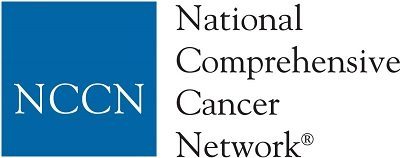New NCCN Imaging Appropriate Use Criteria Resources Help Assure Patients Receive Best Cancer Care Available

- Amanda Bridges
- June 2, 2016
- Clinical Practice Updates, News
New NCCN Imaging Appropriate Use Criteria Compendium provides a single access point for all imaging recommendations within the NCCN Guidelines
FORT WASHINGTON, PA — The National Comprehensive Cancer Network® (NCCN®) has published the NCCN Imaging Appropriate Use Criteria (NCCN Imaging AUC™) to support clinical decision-making around the use of imaging in patients with cancer, helping to assure needed and useful imaging while potentially saving patients from unneeded or inappropriate imaging.
NCCN Imaging AUC™ are accessible through the new NCCN Imaging Appropriate Use Criteria Compendium™ (NCCN Imaging AUC Compendium™), which provides imaging appropriate use criteria in an easy-to-use, single-source derivative product. The NCCN AUC Compendium™, a web-based user interface, provides a searchable and user-customized display of approved NCCN Imaging AUC™. Complimentary access to the NCCN Imaging AUC Compendium™ is available at the following link until 2017: NCCN.org/ImagingAUC
“The launch of the NCCN Imaging AUC furthers our mission to improve the lives of people with cancer,” said Robert W. Carlson, MD, Chief Executive Officer, NCCN. “This easy-to-use resource, based on the unbiased, expert opinion of NCCN Guidelines panel members, enhances clinical decision-making and helps patients receive the very best cancer care possible.”
NCCN Imaging AUC™ include recommendations pertaining to cancer screening, diagnosis, staging, treatment response assessment, follow-up, and surveillance as outlined within the library of NCCN Clinical Practice Guidelines in Oncology (NCCN Guidelines®). NCCN Imaging AUC™ include all imaging procedures recommended in the NCCN Guidelines®, including radiographs, computed tomography (CT) scans, magnetic resonance imaging (MRI), functional nuclear medicine imaging (PET, SPECT), and ultrasound.
NCCN Imaging AUC™ are available for the following cancer types:
- Acute Lymphoblastic Leukemia
- Acute Myeloid Leukemia
- Bladder Cancer
- Breast Cancer
- Genetic/Familial High-Risk Assessment: Breast and Ovarian
- Genetic/Familial High-Risk Assessment: Colorectal
- Hodgkin Lymphoma
- Lung Cancer Screening
- Neuroendocrine Tumors
- Pancreatic Adenocarcinoma
- Prostate Cancer
- Prostate Cancer Early Detection
Additional cancer types will be published in the coming months.
The NCCN Guidelines are the recognized standard for clinical policy in cancer care and are the most thorough and most frequently updated clinical practice guidelines available in any area of medicine. Other NCCN Guidelines derivative products include:
- The NCCN Drugs & Biologics Compendium (NCCN Compendium®) contains authoritative, scientifically derived information designed to support decision-making about the appropriate use of drugs and biologics in patients with cancer. The NCCN Compendium® is recognized by public and private insurers alike, including CMS and UnitedHealthcare as an authoritative reference for oncology coverage policy.
- The NCCN Biomarkers Compendium® contains information designed to support decision-making around the use of biomarker testing in patients with cancer.
- The NCCN Chemotherapy Order Templates (NCCN Templates®) include chemotherapy, immunotherapy, supportive care agents, monitoring parameters, and safety instructions based directly on recommendations within the NCCN Guidelines. Special instructions for self-administered chemotherapeutic agents are also provided.
For more information and to access the NCCN AUC Imaging Compendium™, visitNCCN.org/ImagingAUC.

